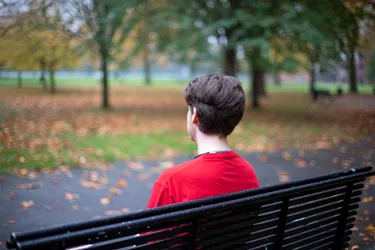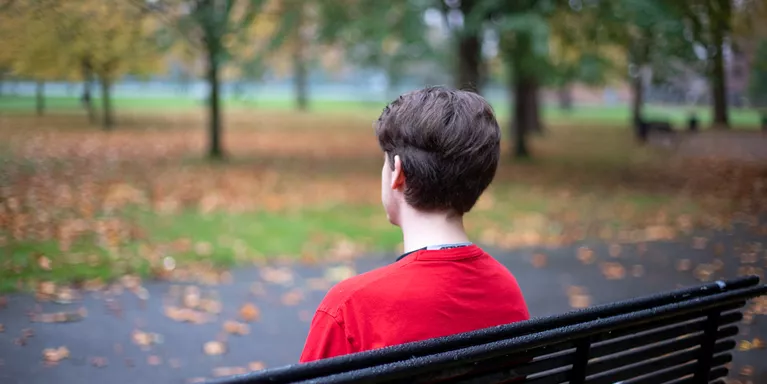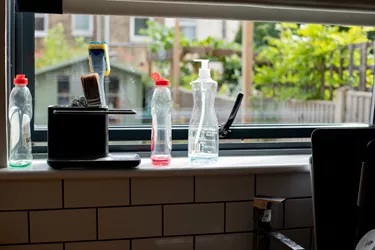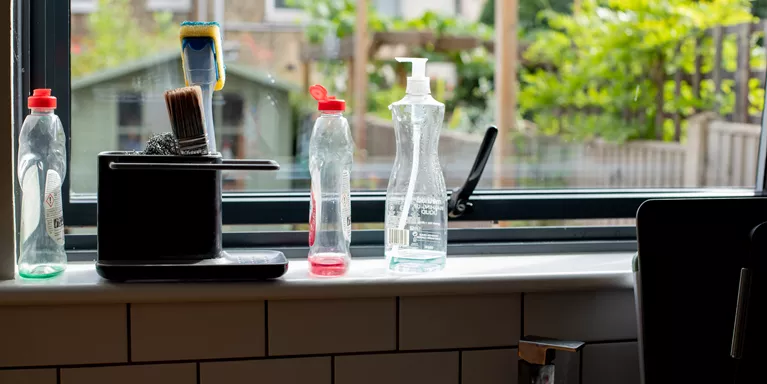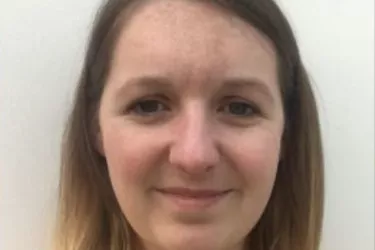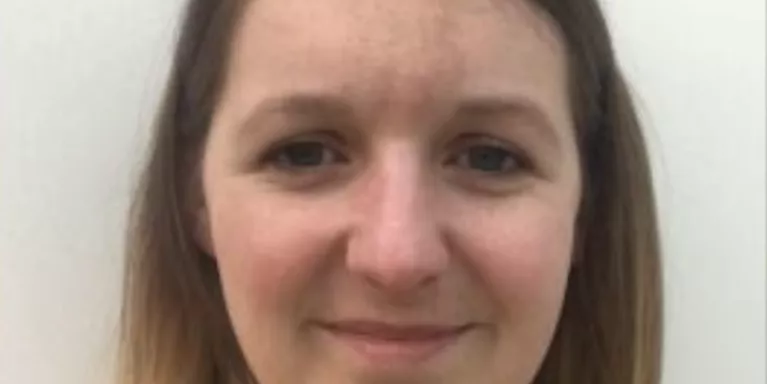Overcoming postnatal OCD
Amy writes about the postnatal OCD that was destroying her life, and how talking about it helped her on the road to recovery.
Devoted mum of two Amy, describes herself as 'positive, upbeat' person.
Most people have heard of postnatal depression but no one talks about postnatal anxiety or postnatal obsessive compulsive disorder (OCD). I for one had never heard of these terrifying mental health illnesses.
The intrusive thoughts are the worst; it’s like being tortured by your own mind – thoughts so distressing and disturbing they make you believe you are the worst of people - unwanted images in my head of my children coming to harm at the hand of myself and others. Add OCD, depression and anxiety to the intrusive thoughts and you fall so fast you don’t know where to go.
My first intrusive thought started when my baby was four weeks old and had a slightly runny nose. From a runny nose, my thoughts quickly spiralled to a chest infection, hospital, intensive care and eventually my baby dying. The anxiety and panic was unbearable. I never slept with worry.
"The worst things you could imagine happening to your baby were in my head. For days I couldn’t sleep, I couldn’t eat, I barely functioned."
But this was just the beginning. The intrusive thoughts got worse. From bathing my baby to him accidently drowning; from changing his nappy to thinking I would touch him inappropriately. The worst things you could imagine happening to your baby were in my head. For days I couldn’t sleep, I couldn’t eat, I barely functioned. I was so scared of what was going on in my head and scared to tell people in case they thought I was some monster.
The problem is once you have those thoughts, you become obsessed with them. Panic sets in because you believe that you’re an awful person for even thinking these thoughts, you become scared thinking that because you had these horrid thoughts you may actually do these terrible things. I was so terrified that I would actually harm my children or something bad would happen to them, I went to live between my mum and mother in law and they took care of my two children whilst I was so unwell.
By letting other people care for them, I felt I was protecting them from me. Unfortunately though it meant I distanced myself from my kids. This made me feel so guilty that I couldn’t look after them and I felt I was missing out on my new baby.
"I felt so ashamed that I wasn’t managing or happy like other mums seemed to be. I thought my family deserved a better person."
I found it so hard to believe that the thoughts were just in my mind and I wasn’t actually going to harm my children. I needed and still do at times, constant reassurance that I was not going to do these disgusting things that kept popping into my head or that it was very unlikely my baby was going to die. I felt so ashamed that I wasn’t managing or happy like other mums seemed to be. I thought my family deserved a better person, a better mum and that I had failed them.
I started to have dark thoughts that maybe I needed to be ‘put down’ for having such disgusting thoughts. I felt like I was never going to be normal again and that everyone would hate me. I thought if anyone knew what thoughts were running through my head they wouldn’t want to be anywhere near me and would want me locked up I only managed to calm down by taking diazepam regularly which just made me so sleepy.
Eventually I started to Google some of my symptoms and was surprised to find that what was actually happening to me was an illness and I wasn’t the only person to have suffered with it.
"It was so hard that instead of speaking out loud I showed them the stories and descriptions of the illness I found on Google and said this is what I have."
I plucked up the courage to go the doctors. Initially I told them I was having really bad general anxiety because I was too scared to say what was happening in my head. After a few days of getting worse and realising what my actual illness was I went back. My mother in law came with me as I was in such a state. Telling my husband, my mum and mother in law was one of the hardest things to do.
It was so hard that instead of speaking out loud I showed them the stories and descriptions of the illness I found on Google and said this is what I have. This is where my recovery began.
I started on antidepressants. I began to see the perinatal mental health team who have been amazing. They were quick, thorough and have helped me understand my illness better.
Regular meetings with the mental health nurse have been an essential part of my treatment and recovery. Being able to talk to a neutral person who understands the illness has helped me get through it.
I also wouldn’t have managed without the amazing people in my life. My husband, Mum and mother in law were my rocks through my toughest and lowest times. I also have three amazing sisters and extended family who all helped out and wonderful friends. Even my best friend far away in Australia helped me in more ways then she’ll ever know.
As well as taking medication, I have done a course of CBT. Through the therapy, I realised that I have suffered from OCD for a long time and did not realise that some of my habits’ and ways are actually not ‘normal’. I am still in the early stages of my recovery. But I am finally realising that there is a light at the end of the tunnel and there is hope.
To anyone who is suffering with these terrible illnesses, please realise you are not alone, it is an illness, you are not a disgusting person, read other people’s stories (it helped me) and please get help.


Information and support
When you’re living with a mental health problem, or supporting someone who is, having access to the right information - about a condition, treatment options, or practical issues - is vital. Visit our information pages to find out more.
Share your story with others
Blogs and stories can show that people with mental health problems are cared about, understood and listened to. We can use it to challenge the status quo and change attitudes.












